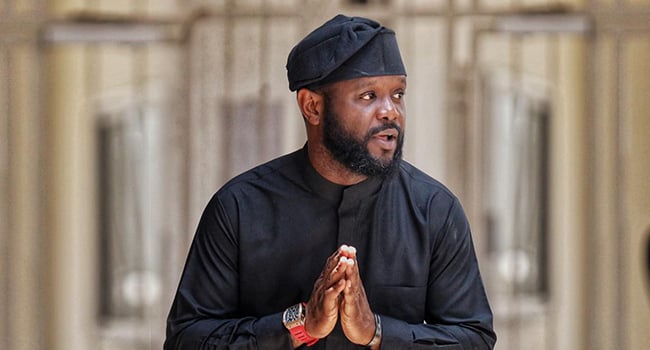The future lies in partnerships that reinforce accountability, transparency and local ownership, argues
ALLAN PAMBA
As the world gathers for the 80th United Nations General Assembly (UNGA), the global health agenda is once again under the spotlight. And how the playing field has changed in just one year! For Africa, UNGA is an unmissable opportunity to ensure that the continent’s priorities are placed firmly at the centre of global commitments. Having said that, however, we must also seize the moment to look inward, prompting Africa’s decision-makers to take custody of their own destinies at country level.
The last few years have shown that progress cannot be taken for granted. Funding shifts, pandemics and political uncertainty have exposed the fragility of many health systems. But they have also revealed the ingenuity of African governments, communities and partners at the edge of a cliff. If there is one lesson to carry into this year’s UNGA, it is that Africa’s health future will not be secured through external dependence, but through partnerships that are co-created, sustainable and grounded in sovereignty. Partnerships and co-creation Health systems are strongest when they are shaped through trust and shared responsibility – and collaboration on the road to universal health coverage is not just about funding streams or technical capacity.
It is about bringing together ministries, industry, civil society and communities to design solutions that reflect local realities and priorities. We have seen new healthcare cocreation models work in practice. In Zambia, when global funding disruptions threatened continuity in HIV and HPV testing, the Ministry of Health convened a national task force and worked alongside partners, including Roche Diagnostics, Pact (Private Agencies Cooperating Together) for HPV and CHAZ (Churches Health Association of Zambia) for HIV to protect services.
By coordinating across government, civil society and industry, the program kept lifesaving testing available and ensured patients remained at the centre of care. In the Democratic Republic of Congo, a strategic private-sector partnership between Roche Diagnostics and the Ministry of Health secured direct procurement of HIV tests for the first time – a significant step towards greater domestic ownership and resilience. By working hand-in-hand with local leaders, the private sector here provides technical support and unlocks essential resources. But it was the government’s leadership that ensured continuity of care, particularly for women and children. These cases demonstrate that partnerships succeed when they reinforce national leadership and political will, building confidence in long-term resilience. Domestic financing and optimisation. The sustainability of Africa’s health systems rests on financing models that are innovative, predictable and locally anchored. Global commitments will always be part of the picture, but they cannot be the whole picture. For too long, external dependency has left essential services in Africa vulnerable to shifting global priorities.
Domestic financing — whether through direct procurement, innovative tax structures or regional pooled mechanisms — is one of the clearest routes to sovereignty. When Ministries of Health take the lead in securing essential diagnostics, they demonstrate to citizens and funders alike that Africa can chart its own course. Optimisation is equally important. Every resource must be stretched to maximum impact. This means smarter procurement practices, leveraging existing infrastructure and prioritising preventive diagnostics that reduce the need for costly treatment later.
Optimisation is not about austerity but about making sure each investment delivers the most value for patients and communities. Sovereignty and sustainability: Health sovereignty is the capacity to decide, fund and deliver care without being at the mercy of external forces. It is not a rejection of global collaboration but a recalibration of how collaboration works. At its heart, sovereignty means that partnerships and financing mechanisms must strengthen Africa’s leadership, not replace it. This UNGA presents an opportunity to advocate for financing models that move beyond temporary solutions.
Emergency responses may bridge immediate gaps, but they are not a substitute for durable systems. The future lies in partnerships that reinforce accountability, transparency and local ownership. The role of data and evidence. Data underpins every aspect of this conversation. African health systems cannot achieve sovereignty without the ability to generate and interpret data locally. Data sovereignty ensures that solutions are relevant, that investments are targeted and that progress is measured in ways that reflect African realities. Reliable diagnostics and strong data pipelines turn investment into insight and insight into action.
As leaders gather in New York, the call from Africa is clear. Place partnerships and financing at the centre of commitments. Back domestic innovations that show promise. Support Ministries of Health in building sustainable systems. Recognise that investment in diagnostics is an investment in both people and economies. Africa’s health sovereignty will not be delivered in a single UN resolution. It will be built step by step, through the partnerships we forge, the financing models we adopt and the determination of governments to lead with courage. The future of African health depends on choices made today. If we commit to co-creation, sustainable financing and sovereignty, we lay the foundation for a healthier and more independent continent. This is the promise of partnership. This is the path beyond UNGA.
Dr Pamba is Executive Vice President, Diagnostics, Africa, at Roche Diagnostics


















Leave a comment